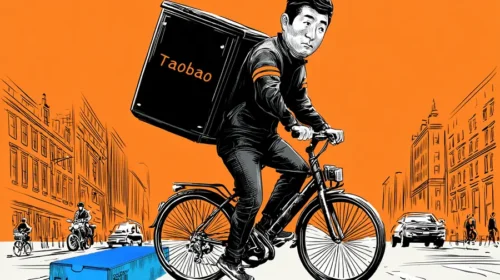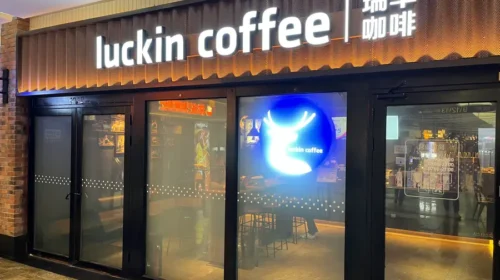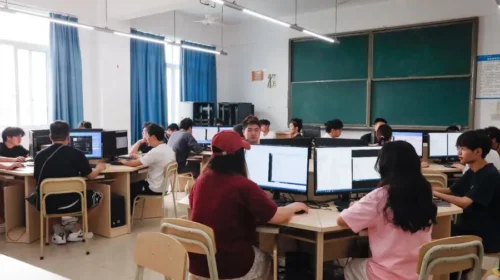CHINA BULLETIN: Top U.S. Diplomat, Banker Plot First Post-Covid China Trips
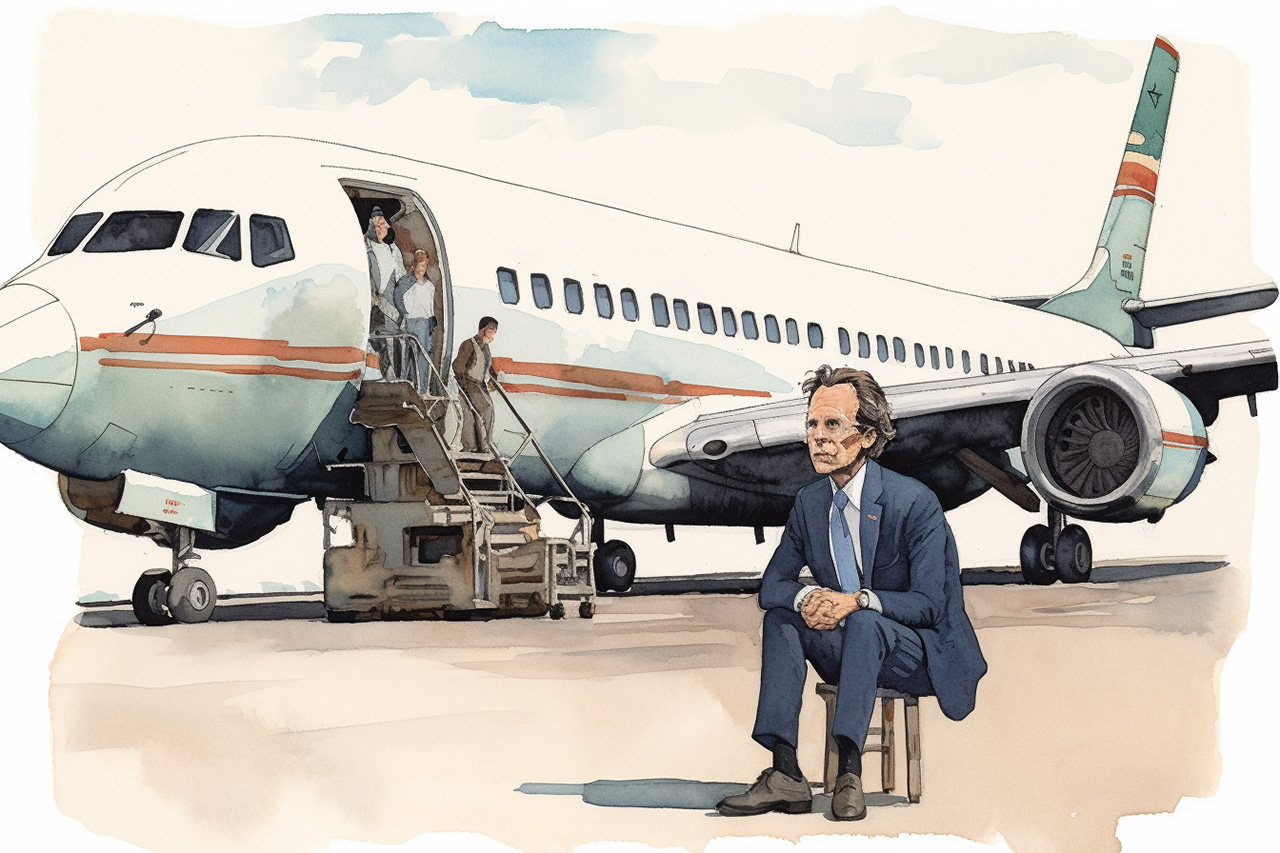

In this week’s issue Antony Blinken hopes to call on Beijing, May Day travelers return to the road, and Luckin’s disgraced co-founders return to the coffee business. On a scale of 1 to 100, we give the week a 60 for offshore-listed China stocks.
Doug Young, Editor in Chief
You can sign up to get China Bulletin weekly in your inbox.
MACRO
Top U.S. Diplomat, Banker Plot First Post-Covid China Trips
In the clearest sign yet that Washington wants to put its China relations on more stable footing, U.S. Secretary of State Antony Blinken said in an interview he hopes to reschedule a trip to China originally set for February to later this year. Separately, JPMorgan chief Jamie Dimon, arguably the most famous U.S. banker, is also reportedly planning his first post-Covid trip to China this month.
Blinken’s originally planned China trip was scrapped after the famous “balloon incident” that saw a Chinese data-gathering balloon drift over much of the U.S. for days. Dimon, meantime, has been in headlines recently for his role in rescuing the troubled First Republic Bank. Visits by both would send an important signal that the U.S. still wants to engage with China at the highest levels.
Factory Activity Slips Back to Contraction
After a couple of months in expansion territory, the Caixin PMI, which measures private sector manufacturing activity, fell back into negative territory in April with a reading of 49.5. That was a setback from the March reading of 50, and the 51.6 for February. Anything above 50 is considered expansion, while anything below means the sector is contracting.
This development isn’t completely unexpected, since the PMI reading was weak for much of last year as China’s strict Covid controls wreaked havoc on supply chains. Now, people are waiting to see if a rebound after those controls were lifted in December has legs, or is just temporary. On a more positive note, the Caixin Services PMI was still expanding with an April reading of 56.4.
China Stocks Lifted by Legions of May Day Travelers
The May Day holiday brought some cheer to offshore-listed Chinese stocks, as tourists took advantage of the break to get out and spend. The Hang Seng China Enterprises Index closed up 1.4% during a shortened four-day trading week in Hong Kong, while the broader Hang Seng Index gained 0.8%. In the U.S. where there wasn’t any holiday, the iShares MSCI China ETF rose 0.3%.
The broader signals indeed looked relatively positive for Chinese companies last week, as travel during the five-day May 1 holiday exceeded pre-pandemic levels. But a weak manufacturing PMI showing for April may have taken some wind out of the buying sentiment, showing China’s economic rebound might not be as strong as some were hoping.

Industry
May Day a Hit for Tourism, Dud for Real Estate
So, just how good was the long May Day holiday? The answer, it seems, depends on who you ask. If it’s someone in the tourism industry, the answer is quite good, as the 274 million trips logged over the five-day holiday was up 19% from pre-Covid levels in 2019. But the picture was less rosy for the ailing property market, whose sales over the period were 22% below pre-Covid levels.
This particular dichotomy probably owes to the “revenge spending” concept we’ve discussed before, which is characterized by bursts of energetic spending immediately after Covid restrictions are eased. That’s easy to understand for people who haven’t taken a proper vacation in years. But when it comes to big things like buying a home, such impulse spending is far less common.
China’s Old Clothes Fall Out of Favor
Some new data shows how China is quickly losing its edge in the textile industry, which isn’t really very sexy but for years was one of the main pillars of the country’s export machine. Customs data reveals China’s textile and apparel exports fell 6.8% in this year’s first quarter, with exports to the U.S. and Europe both down by double-digit amounts.
This particular trend has been happening for quite a while, as up-and-comers like Vietnam and Bangladesh find a growing place at the global textile table. The trend accelerated during the pandemic due to all the disruptions in China. Based on stories we’ve heard, even Chinese textile makers are moving some of their manufacturing offshore in search of lower costs.
Chinese Airlines Get More U.S. Flights
New reports last week shed some light on what’s been holding back the U.S. and China from adding more flights between the world’s two largest economies. It seems it’s all about Russia, or specifically Russian airspace. U.S. airlines are no longer allowed to fly over Russian airspace, which they say puts them at a disadvantage to their Chinese peers that can still fly over Russia.
To level the playing field, Washington is reportedly pushing China to require its airlines to not fly over Russia on their trips to the U.S., making everyone fly the same longer and less fuel-efficient routes. The U.S. seems to finally be budging, at least a little, by allowing Chinese airlines to add four more weekly flights, bringing their total to 12 each week, the same as U.S. airlines now fly.
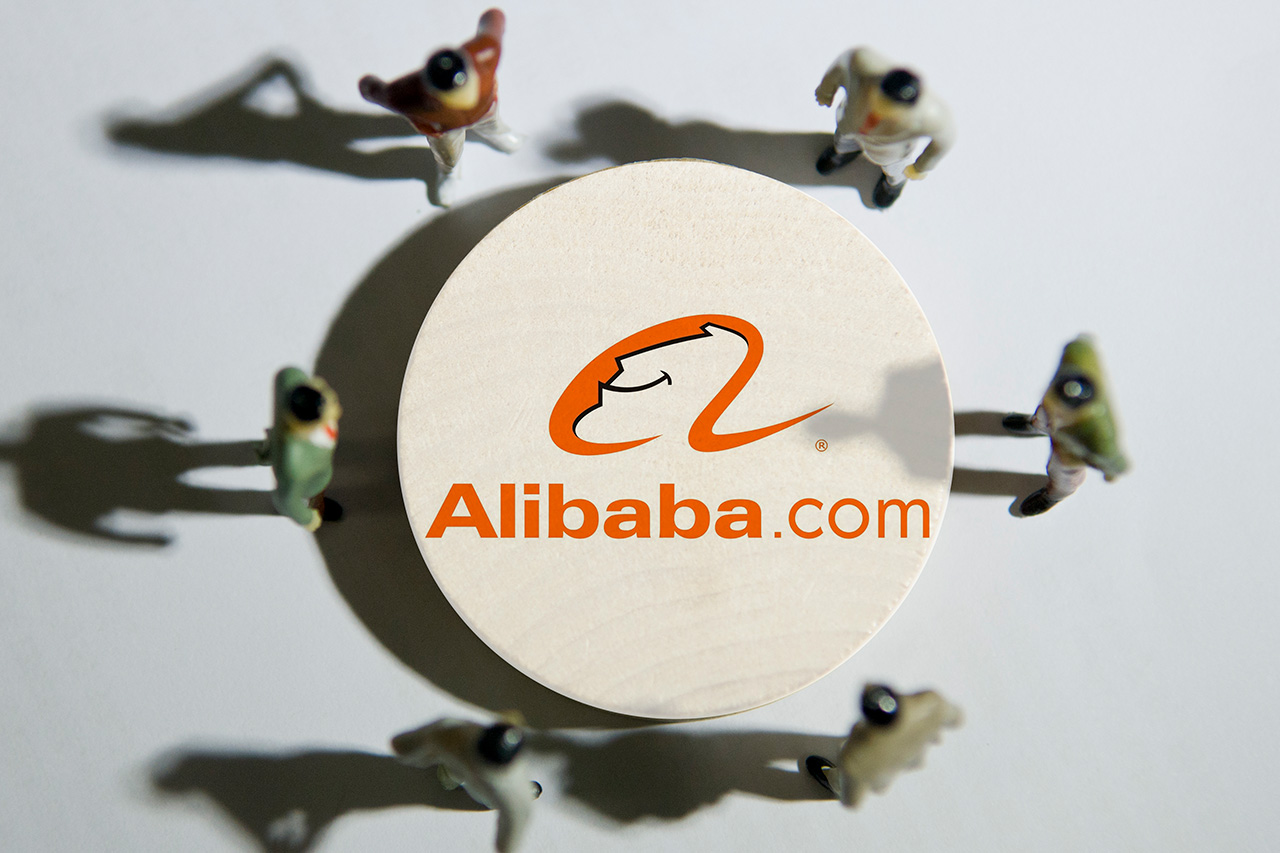
Company
Alibaba Weighs IPO for Overseas Unit
In the latest dismantling move from Alibaba, the e-commerce giant is reportedly mulling a plan to spin off and separately list its offshore operations, including its Southeast Asian Lazada and AliExpress e-commerce services. The move appears to be part of the company’s announcement last month of a plan to split itself into six separate units.
Alibaba previously said that global e-commerce would be one of those units that would be run separately, including sinking or swimming on its own. This kind of spin-off and separate listing could also help to ease some foreign governments’ concerns about data security, since both Lazada and AliExpress possess huge troves of such data in the markets where they’re active.
Huawei’s Stagnating Revenue
In what comes as little surprise, struggling former tech superstar Huawei has reported its revenue was basically flat in the first quarter, rising by a miniscule 0.8% to 132.1 billion yuan year-on-year. The company has been hobbled for several years now by U.S. sanctions that are wreaking havoc on its former core smartphone and telecoms networking equipment businesses.
Perhaps more worrisome, the company’s net margin fell to just 2.3% in the latest quarter from 4.3% a year earlier, meaning it’s rapidly losing its profitability. If the company doesn’t come up with a new formula for success soon, it could easily slip into the red, which wouldn’t bode well for its longer-term future.
More Drama for Fosun Steel Asset Sale
The antics are continuing in an entertaining “made in China” drama involving a steel-making asset being sold by Fosun to pay down its massive debt load. The latest development has seen spurned suitor Jiangsu Shagang suing Fosun for reneging on a deal to sell Fosun’s 60% of a large Nanjing-based steelmaker for about 13.6 billion yuan, or roughly $2 billion.
Things soured when the other major shareholder of the Nanjing steelmaker exercised its right to pre-empt the deal with its own offer for the 60% stake. We don’t really understand why the partner didn’t make its offer sooner, since the deal has been talked about for a while. But in the meantime, Fosun will have to wait a while longer for the much-needed cash from this deal.
AND FROM THE PAGES OF BAMBOO WORKS
| Nio Seeks Satisfaction, But Likely to Get Little Charge, from Defamation Lawsuit Last week we brought you a very made-in-China story from the hot EV sector, where electric car maker Nio sued a blogger over a post he made implying the company discriminates against Chinese consumers by charging them higher prices than their European peers. Nio said it believes the blogger deliberately misled readers by making an apples-to-oranges comparison. This kind of attack, whether in official media or from a growing generation of influential bloggers, has a long history in China, and is often motivated by hidden agendas. In Nio’s case, the company seems to be strongly implying the blogger was paid by someone else, perhaps a rival, to post the article and harm Nio’s reputation. |
| Scandal-Tainted Luckin Founders Try for Second Cup If you don’t succeed with one ponzi scheme, then try another. Perhaps we’re being slightly unfair with that sentiment, but it really seems to apply in another story on our pages detailing how the scandal-tainted founders of Luckin Coffee are back in the business with a new fast-growing knock-off chain called Cotti. A bit of online digging turned up a number of outstanding enforcement records against Luckin founder Charles Lu, though there were no such records for his partner, Jenny Qian. The pair have previously denied personal involvement in cooking the company’s books to the tune of $300 million in fake sales. Good luck to this pair finding future funding, or in any future IPO plans. |
